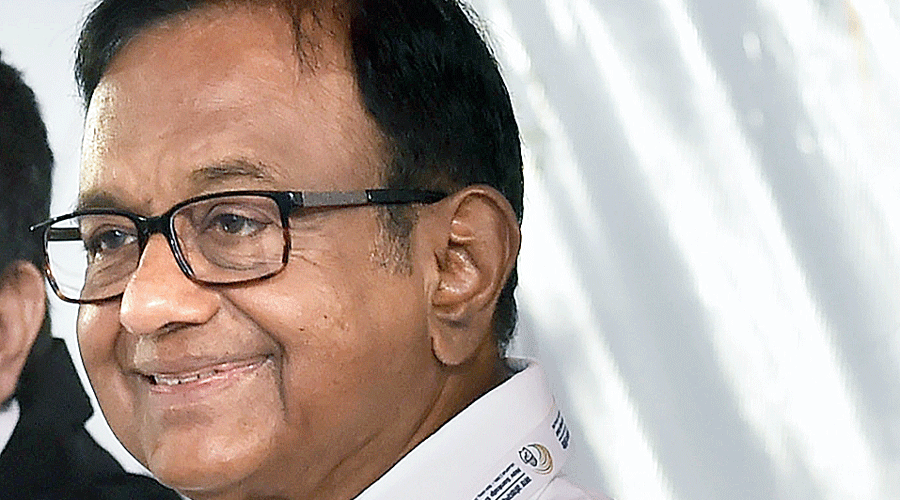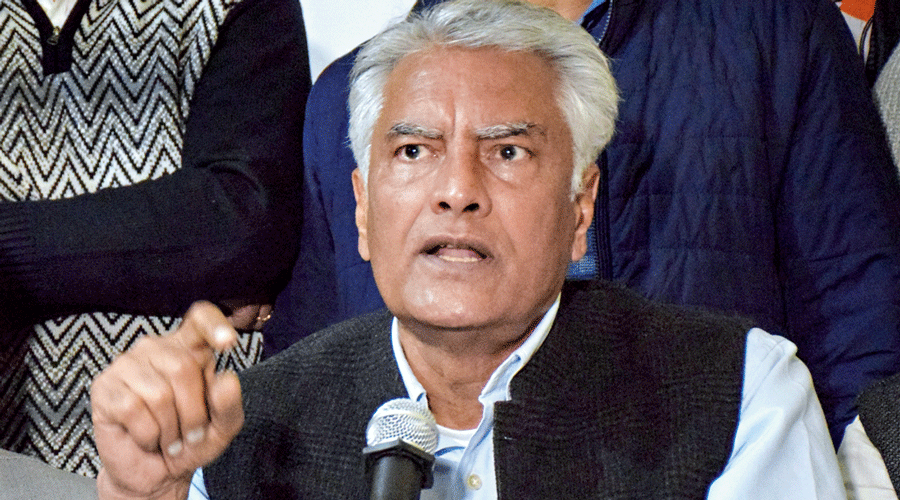The Congress on Saturday declared an intent to reset its economic policies, signalling a pro-poor welfare shift whose contours will be known after the completion of the ongoing Chintan Shivir here.
Former finance minister P. Chidambaram, who heads the party’s committee on economy, clarified that “reset” did not mean “stepping back” from “the policies of economic liberalisation but stepping forward post-liberalisation”.
“We will put forward an economic policy that will appeal to the people,” he said.
Sonia Gandhi had forced the party a decade ago to alter the contents of its liberalisation policy by introducing a strong welfare thrust, which resulted in measures such as the MGNREGA scheme — the 100-day rural employment guarantee drive — the Food Security Act and several pieces of rights-based legislation.
Rahul Gandhi had proposed in 2019 the Nyay scheme that sought to offer a fixed income support to the poor. The Congress is now trying to incorporate that spirit in its future economic policy.
Chidambaram said at a media conference: “A Congress-led government ushered in a new era of liberalisation in 1991. The country has reaped enormous benefits in terms of wealth creation, new businesses and new entrepreneurs, a huge middle class, millions of jobs, exports and lifting 27 crore people out of poverty during a 10-year period. After 30 years, it is felt that taking into account global and domestic developments, it may be necessary to contemplate a reset of the economic policies.”
Urging people to realise that issues that polarise society are not important, the Congress veteran said: “What is more important is that 50 per cent women are anaemic; the growth of children has stunted due to malnutrition. That should hit us rather than halal meat and loudspeakers. The fundamental issues are health, education and extreme poverty. These are the issues I am going to spend every ounce of my energy on.”
Giving a clear indication of the direction of the shift, Chidambaram said: “A reset of economic policies must also address the questions of rising inequalities, extreme poverty among the bottom 10 per cent of the population, India’s rank in the Global Hunger Index 2021 (101 among 116 countries) and evidence of widespread nutritional deficiency among women and children.
“A comprehensive review would also be justified by the health and education outcomes as revealed by the Annual State of Education Report 2021 and the National Family Health Survey-5. We believe that a recalibration of economic policies can influence health and education outcomes.”
He added: “We must prepare the Indian economy and the Indian workforce to adapt to the ways in which industry, business and trade will be conducted in the 21st century with greater use of automation, robotics, machine learning and artificial intelligence. We believe that important changes in economic policies will be required in the light of climate change and the need for mitigation and adaptation.
“I am confident that our deliberations over three days and the decisions that will be taken by the CWC (Congress Working Committee) in the days and weeks ahead will make a significant contribution to the nationwide debate on the economic policies that will best serve the interests of the country and its people.”
The former finance minister insisted that a reset was different from a review or reconsideration. “We are 30 years down the road since 1991. The world has changed, India has changed. A reset means taking into account the global and domestic developments and fine-tuning policies. The time has come for a reset,” he said, stressing that priorities must be fixed for greater spending on social services.
Iterating that the state of the Indian economy was a cause of extreme concern, as a slower rate of growth had become the hallmark of the Narendra Modi government, Chidambaram said: “Inflation has risen to unacceptable levels and threatens to rise further. WPI (wholesale price index) inflation is at 14.55 per cent and CPI (consumer price index) inflation is at 7.79 per cent. The government is actually fuelling the rise of inflation by its wrong policies, especially through high taxes on petrol and diesel, high administered prices and high GST tax rates.”
The Congress leader rejected the contention that external factors like the Russia-Ukraine war were pulling the economy down.
“High prices of petrol-diesel and cooking gas cylinder predate the Ukraine war. The war has complicated issues but the government should have taken pre-emptive measures. It is clear now that the RBI was behind the curve, perhaps because the government nudged it to go slow. The job situation has never been worse. The Labour Force Participation Rate is at a historic low of 40.38 per cent and the unemployment rate stands at 7.83 per cent.”
Chidambaram added: “The government appears clueless on the ways to deal with external developments. Over $22 billion has flowed out of the country in the last seven months. The foreign exchange reserves have depleted by $36 billion. The exchange rate stands at Rs 77.48 to a dollar, the highest ever.”












